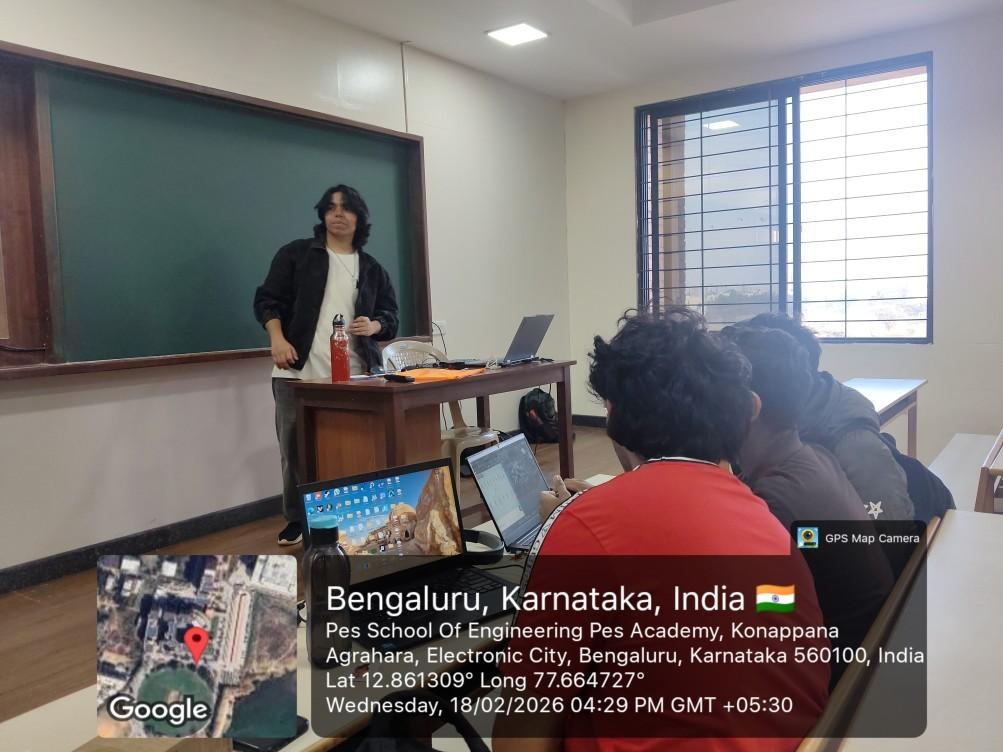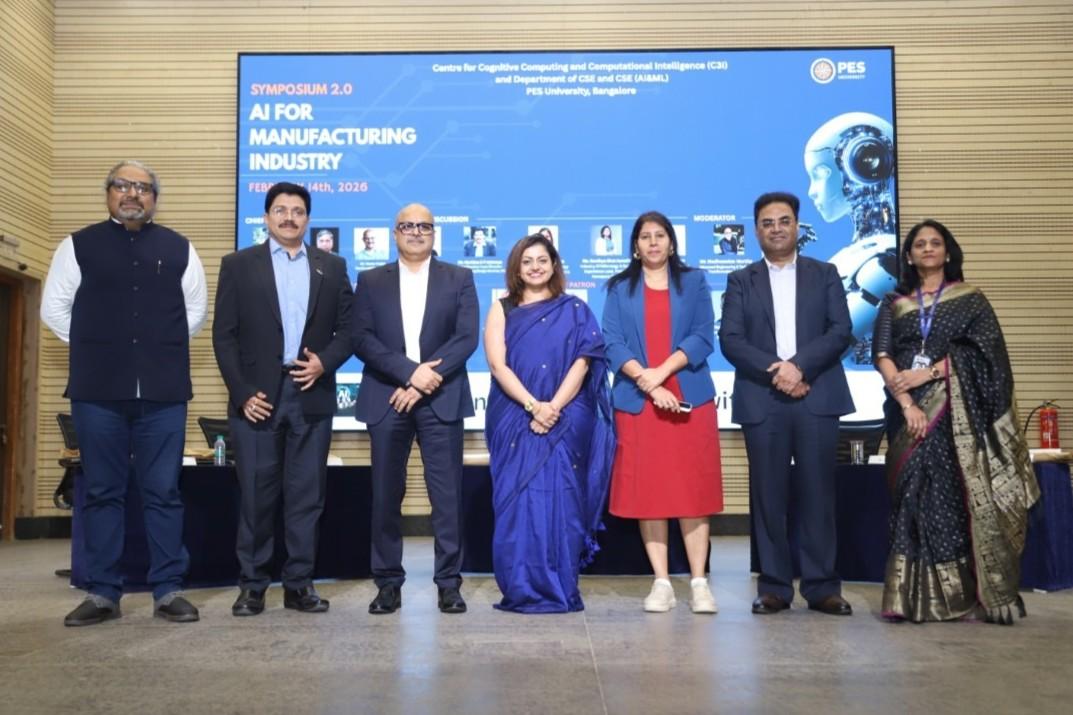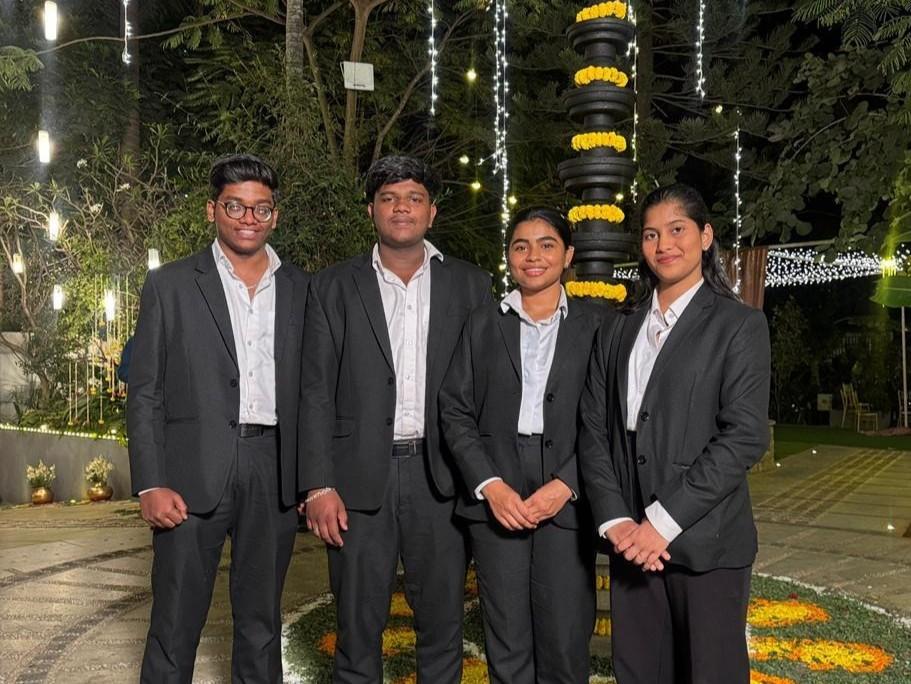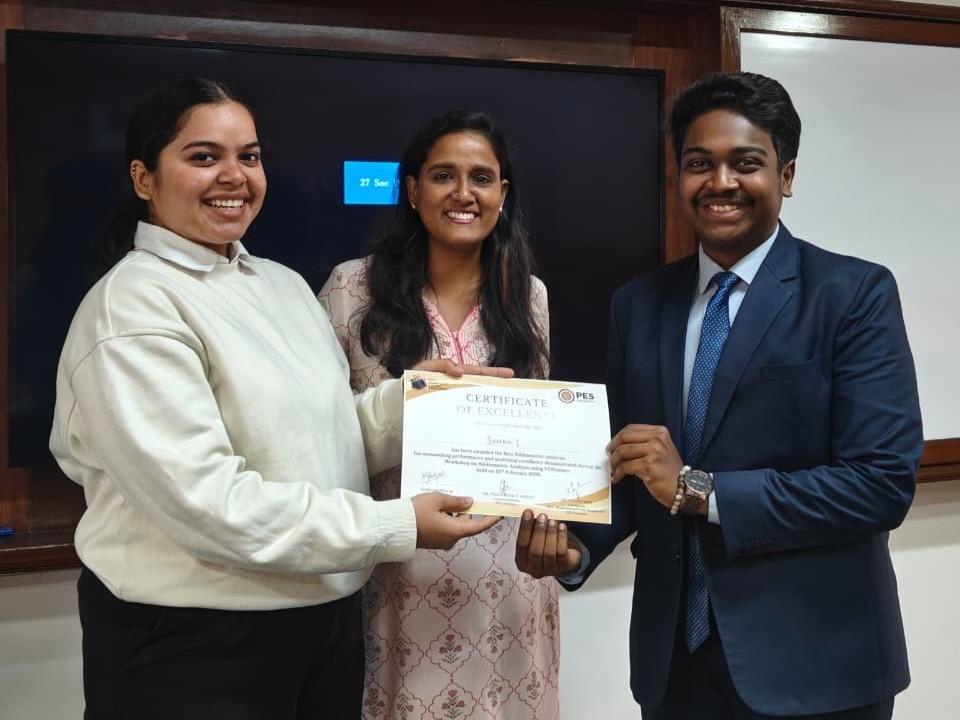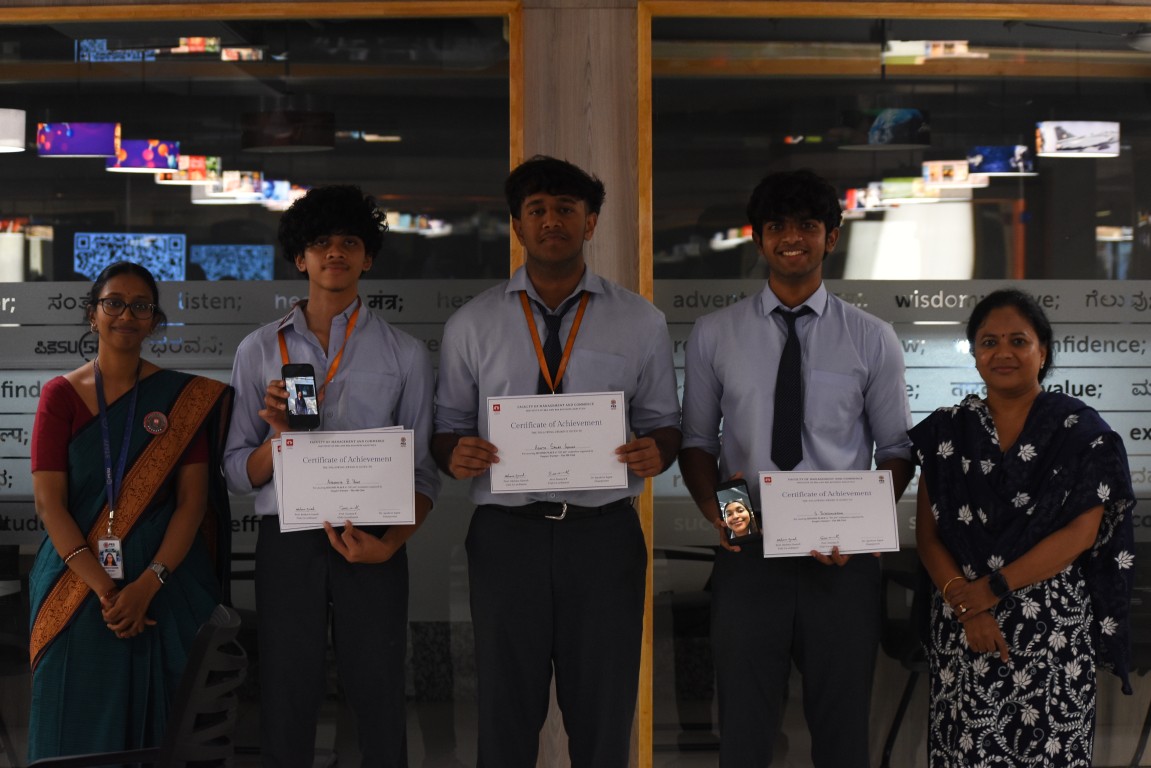Intellectual Property Rights Symposium: Exploring Challenges and Opportunities
Executive Summary
PES University's Department of Computer Applications hosted a symposium on Intellectual Property Rights (IPRs) on March 25, 2023. The event brought together legal experts, industry professionals, academicians, and students to exchange knowledge and ideas on IPRs, covering topics such as copyright, trademarks, patents, and the challenges faced in the digital age. The symposium concluded with a call for collaboration to create a more favourable environment for innovation and creativity.
Introduction
On March 25, 2023, the Department of Computer Applications at PES University organized a symposium on Intellectual Property Rights (IPRs). The event aimed to provide a platform for participants to exchange knowledge and ideas about IPRs, fostering awareness and understanding of the significance of intellectual property. The symposium attracted a diverse group of attendees, including legal experts, industry professionals, academicians, and students.
Opening Remarks
Dr. V Krishna, Dean of Student Affairs at PES University, inaugurated the event, emphasizing the importance of intellectual property and the need for students to take advantage of the expertise offered by the speakers.
Session Highlights:
Dr. Eric Dias: Comprehensive Overview of IPRs
Dr. Eric Dias, a Law Consultant and Patent Engineer, began the symposium with an extensive overview of Intellectual Property Rights (IPRs). He explained that intellectual property comprises creations of the mind, such as inventions, artistic works, and symbols or designs. Dr. Dias then delved into the specifics of various IPRs, including copyrights, registered trademarks, trademarks, and patents:
- Copyrights protect literary and artistic works, including novels, films, music, and architectural designs, granting creators exclusive rights to reproduce, distribute, and adapt their creations.
- Registered trademarks safeguard distinctive signs, such as logos or brand names, that identify a company's products or services. Unregistered trademarks, though not officially registered, may still provide some legal protection based on usage.
- Patents grant inventors the exclusive right to prevent others from making, using, or selling their inventions for a limited period.
- Dr. Dias also addressed numerous questions from the audience, using detailed illustrations to ensure a clear understanding of these complex concepts.
Mr. Shailesh Tavate: Challenges in the IPR Landscape
Mr. Shailesh Tavate, IP Head at Log9 Materials, focused on the challenges faced by IPRs in today's rapidly evolving world. He identified four primary obstacles.
- The complexity of the legal framework, which can vary across jurisdictions and create confusion for businesses and individuals.
- Confidentiality concerns, as innovators must balance the need to protect their intellectual property with the desire to share information and collaborate.
- Public awareness deficits, which can lead to a lack of understanding of the importance of IPRs and, consequently, infringement or undervaluation of intellectual property.
- Enforcement difficulties in the digital age, as the rapid proliferation of digital content and technology has made it increasingly challenging to monitor and prevent IPR violations.
Mr. Tavate emphasized the need for continued dialogue and collaboration among stakeholders to address these challenges and ensure the effective protection of intellectual property rights.
Ms. Sudha Tegginmani: Copyrights, Licenses, and the Role of Government in IPR
Ms. Sudha Tegginmani, Senior Legal Counsel at Infosys, shared her expertise on copyrights and license properties. She underscored the importance of copyright protection in safeguarding creators' rights to their work, while licenses provide a framework for others to use copyrighted works under specific conditions.
Ms. Tegginmani also discussed the government's role in fostering innovation and creativity through IPR policies and legislation. She highlighted Creative Commons, a non-profit organization that offers a range of standardized copyright licenses, and the Fair-use policy, which allows limited use of copyrighted material without permission under certain circumstances.
Additionally, she explored the challenges surrounding intellectual property and ownership rights in the context of artificial intelligence advancements, raising questions about ownership, liability, and the need for clear guidelines in this rapidly evolving field.
Mr. Sean Lawrence: Patent Filing and Fostering a Creative Lifestyle
Mr. Sean Lawrence, Software Architect at Intel Corporation, provided insights on the patent filing process, from conducting a thorough patent search to navigate existing patents to preparing a detailed application and ultimately obtaining approval from the relevant government agency. He explained the importance of prosecuting the application effectively, as this can significantly impact the chances of securing a patent.
Mr. Lawrence also shared valuable advice on nurturing a lifestyle that fosters invention and novelty in one's work. He emphasized the importance of curiosity, open-mindedness, and persistence in the pursuit of innovative ideas. Moreover, he encouraged attendees to engage in lifelong learning, collaboration, and exploration of diverse perspectives to stimulate creativity and drive technological advancements.
Conclusion
The symposium on Intellectual Property Rights at PES University proved to be an enriching experience for all participants, covering a wide range of topics related to IPRs. The expert speakers provided valuable insights on the various aspects of intellectual property, the challenges faced in the digital age, and the need for collaboration to create a favorable environment for innovation and creativity.
Dr. Lekha A concluded the symposium by thanking all the speakers for their invaluable contributions. The event proved to be a great success, enabling participants to exchange knowledge and ideas on IPRs, and promoting awareness of the importance of IPRs in protecting the rights of inventors, creators, and innovators.
The symposium also shed light on the challenges faced by IPRs in the digital age, concluding with a call to action for participants to collaborate and create a more favorable environment for innovation and creativity.
- #Event #Innovative
- March 27, 2023
- Viewed - 2852
- Liked - 5

.jpeg)
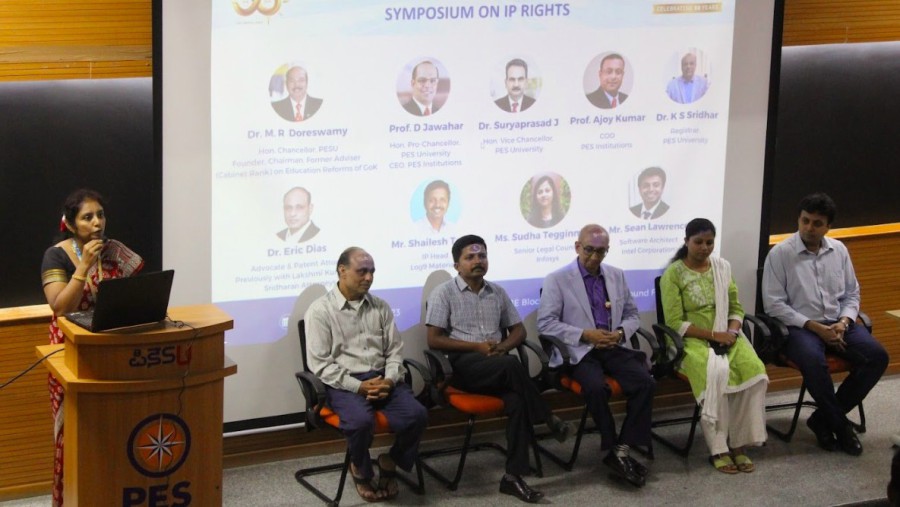
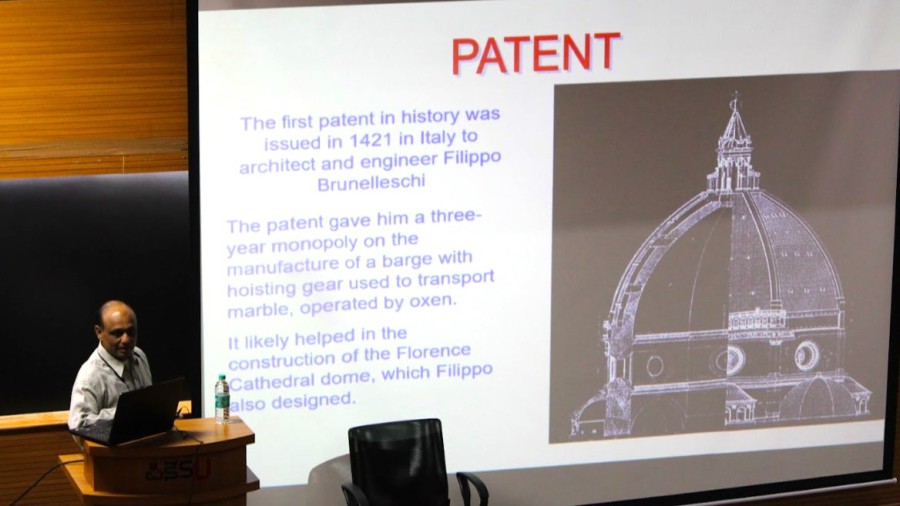
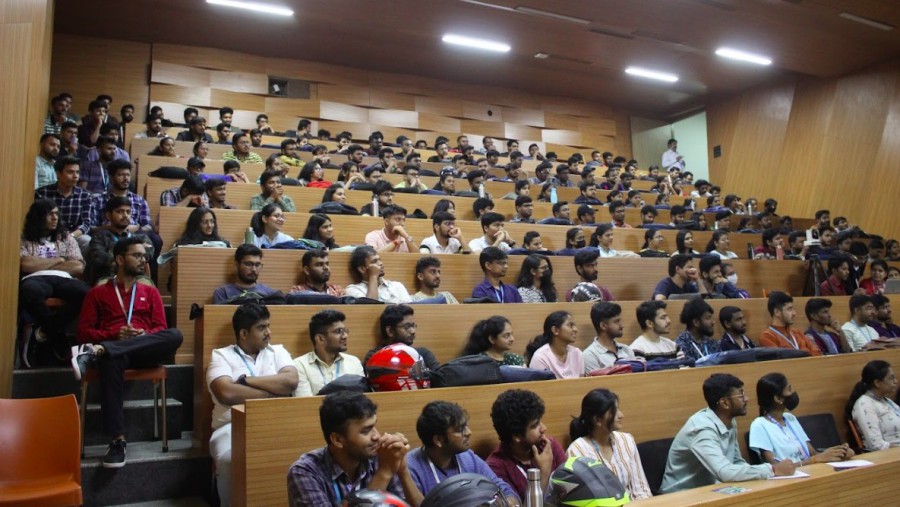
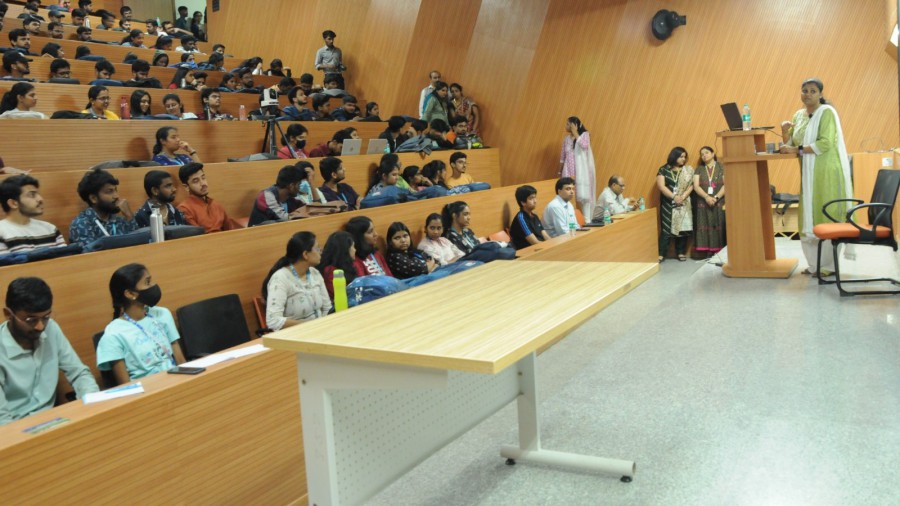
.jpeg)
